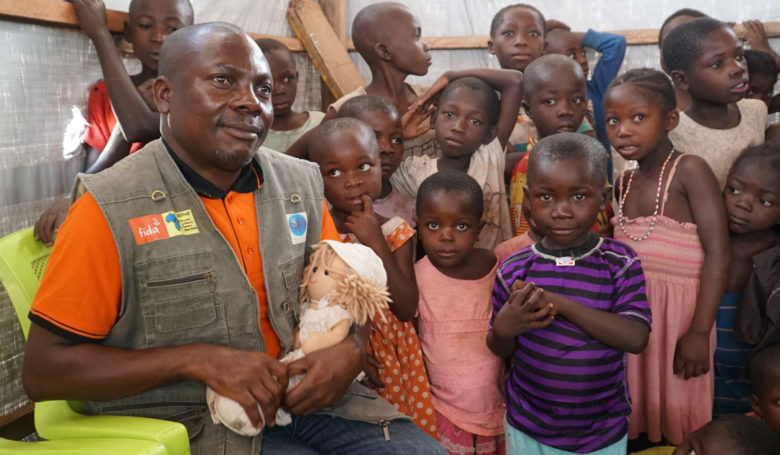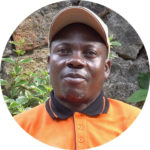“In my country, children with disabilities are hidden – I dream of a more just Congo”

Fida Country Coordinator Welongo Faizi explains how his path from working with refugees lead into advocating for children with disabilities in the Congo.
“Greetings from the Democratic Republic of Congo, where I live with my wife and children. My name is Faizi Welongo II. I am the coordinator of the Fida Congo Country Program. I am also a pastor and work with CEPAC – Pentecostal church, Fida’s partner in the Congo.
I finally got to return to my beautiful homeland with my family after eleven years as a refugee.
I first came got to know about Fida when I myself was a refugee in Tanzania more than twenty years ago. Fida did relief work there with a Tanzanian Pentecostal church (FPCT) in the refugee camp where I lived. I started working with Fida’s projects first as a volunteer and later as an employee.
I finally got to return to my beautiful homeland with my family after eleven years of as a refugee. Fortunately, I was able to continue working with Fida here in the Congo.
In some communities, a child born with a disability may even be killed because of shame.
All over the world, every child’s greatest desire is to live the normal life a child. In my country, however, children face a lot of suffering due to ongoing armed conflicts. Children with disabilities suffer the most. They are a very discriminated group in my country. If a disabled child is born into a family, it is often a huge shock. The shame and secrecy associated with disabilities keeps these children forgotten and locked up at home. In some communities, a child born with a disability may even be killed because of shame.
Our program in the Congo has brought about an astonishing change in a few years.
Wars and crises also cripple children in many ways, both mentally and physically. That is why we have put these children at the center of our work, since they are rejected in homes, schools, and our society. Children are the future of the Congo!
I am pleased to say that our program in Congo has brought about an astonishing change in a few years. It all started with small steps. We started talking in communities about the right of every child to go to school. We organized discussion sessions among parents, teachers, church leaders, and villagers. In these common meetings, people have realized how destructive their attitude toward people with disabilities has been. Many have apologized for their attitude and taken up the cause of children with disabilities.
We want to ensure the right of children with disabilities to education. We have therefore organized trainings for teachers so that they can support the schooling of different kinds of students.
When a child with a disability gets into school, it really means a lot to him and his family. If he or she is able to complete his education, he will have the same keys to life as other children. For children with disabilities, access to school therefore means their participation in life. Access to school is not just a right – it is a path to the realization of other human rights.
Together with Fida and my church, we are working so that one day Congo would be a more just place to live.
It is easy to build a school or repair buildings. But in the Congo, broken minds and hearts are most in need of repair. Prolonged crises, violence and refugees have left deep traumas that are passed down from one generation to the next. As one form of work, we have psychosocial support, through which we are able to support both the children and their guardians. Psychosocial support at its simplest is allowing children to play in a safe place.
I am very hopeful that the future of my country will be better. Together with Fida and my church, we are working to make Congo a just place to live one day. This is my dream that I am working towards.”

Blog author: Welongo Faizi
The author lives in the Democratic Republic of Congo, in the city of Goma, with his wife and nine children. He has worked among refugees for Fida since 1997.
3.12.2020
